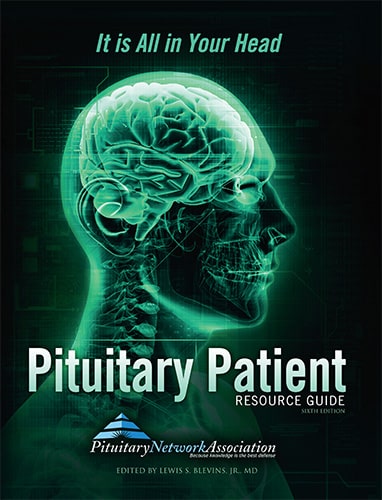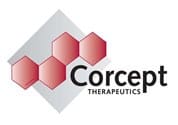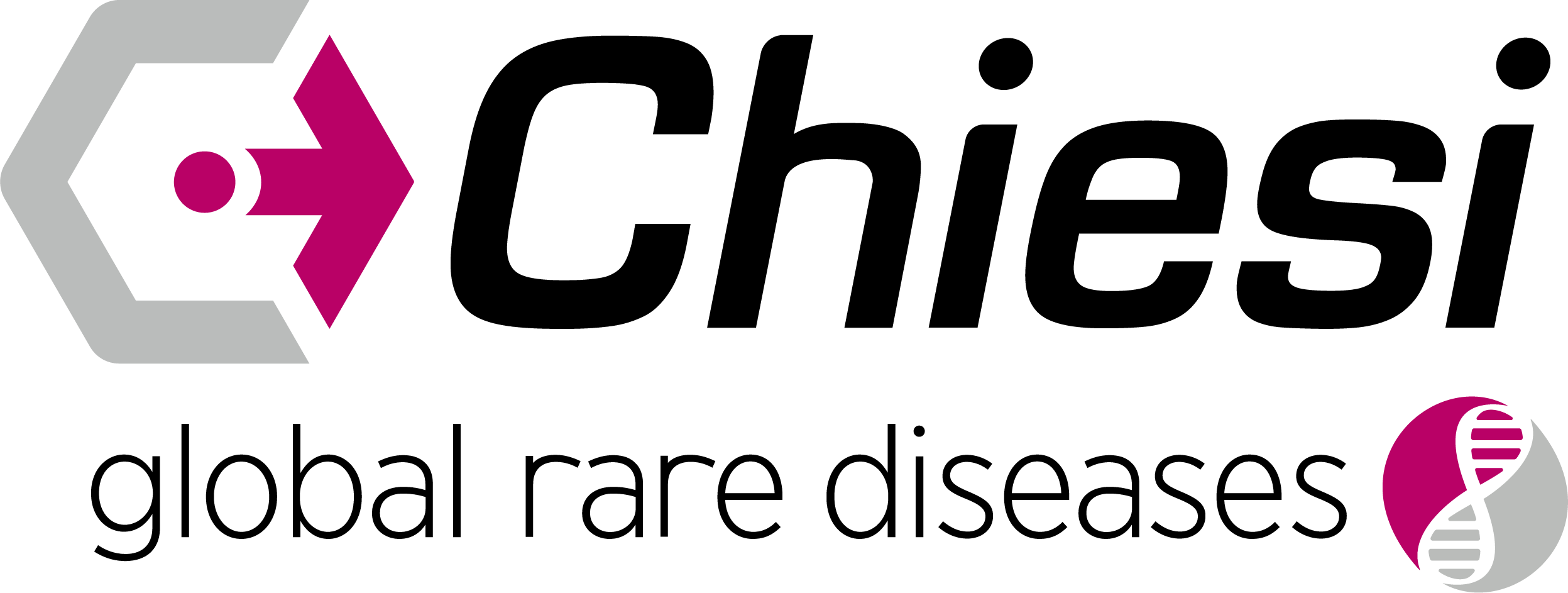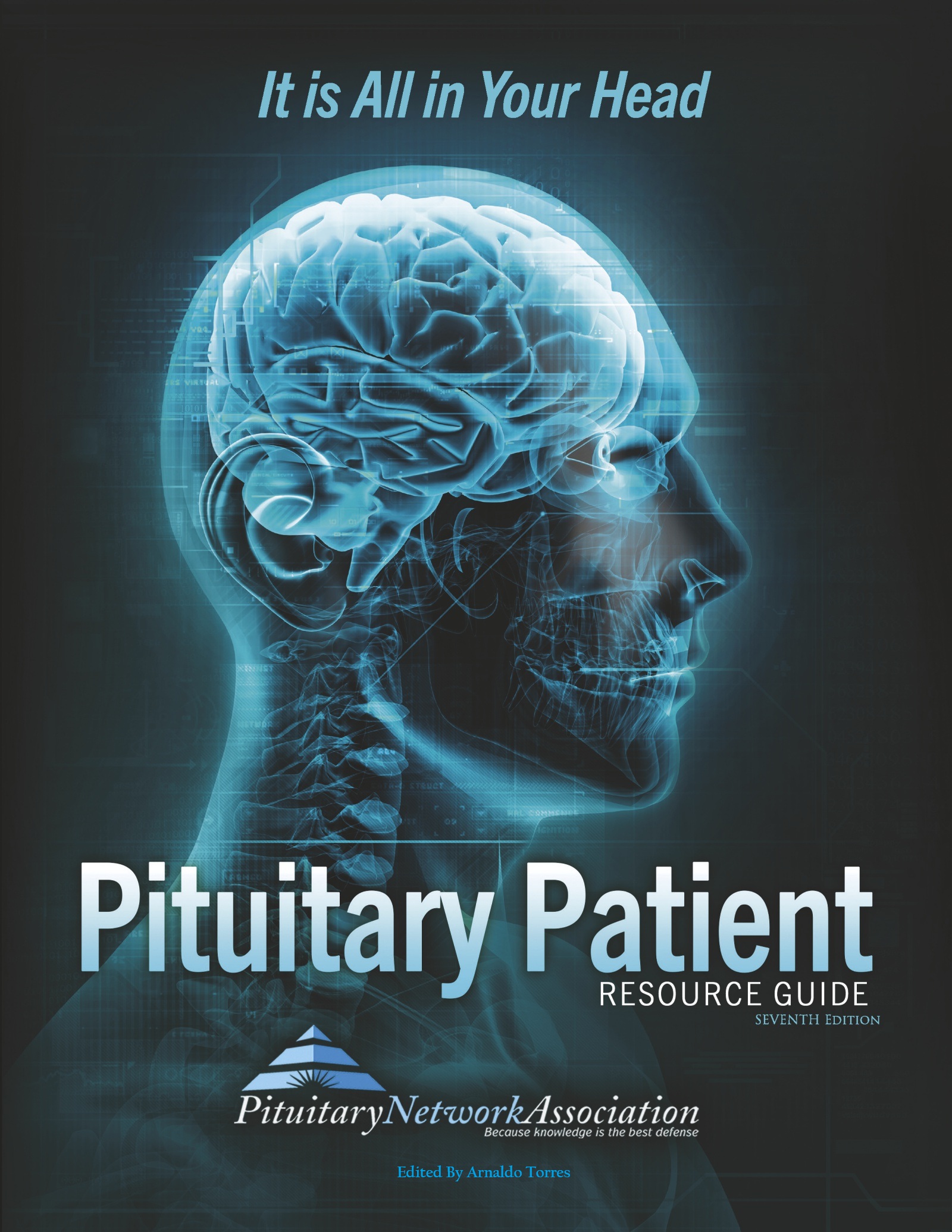News Articles February 2022
Written on 04 February 2022.
PNA Medical Corner: Fluid discharge protocols after surgery

 This month the PNA Medical Corner features an article co-authored by multiple members of the PNA: Drs. Ho, Fleseriu, Little, Kaiser, and Melmed. It proposes a new standard for clinical classification for pituitary neoplasms.
This month the PNA Medical Corner features an article co-authored by multiple members of the PNA: Drs. Ho, Fleseriu, Little, Kaiser, and Melmed. It proposes a new standard for clinical classification for pituitary neoplasms.
A proposed clinical classification for pituitary neoplasms to guide therapy and prognosis
- PMID: 38301678 DOI: 10.1016/S2213-8587(23)00382-0
Abstract


 No comprehensive classification system that guides prognosis and therapy of pituitary adenomas exists. The 2022 WHO histopathology-based classification system can only be applied to lesions that are resected, which represent few clinically significant pituitary adenomas. Many factors independent of histopathology provide mechanistic insight into causation and influence prognosis and treatment of pituitary adenomas. We propose a new approach to guide prognosis and therapy of pituitary adenomas by integrating clinical, genetic, biochemical, radiological, pathological, and molecular information for all adenomas arising from anterior pituitary cell lineages. The system uses an evidence-based scoring of risk factors to yield a cumulative score that reflects disease severity and can be used at the bedside to guide pituitary adenoma management. Once validated in prospective studies, this simple manageable classification system could provide a standardised platform for assessing disease severity, prognosis, and effects of therapy on pituitary adenomas.
No comprehensive classification system that guides prognosis and therapy of pituitary adenomas exists. The 2022 WHO histopathology-based classification system can only be applied to lesions that are resected, which represent few clinically significant pituitary adenomas. Many factors independent of histopathology provide mechanistic insight into causation and influence prognosis and treatment of pituitary adenomas. We propose a new approach to guide prognosis and therapy of pituitary adenomas by integrating clinical, genetic, biochemical, radiological, pathological, and molecular information for all adenomas arising from anterior pituitary cell lineages. The system uses an evidence-based scoring of risk factors to yield a cumulative score that reflects disease severity and can be used at the bedside to guide pituitary adenoma management. Once validated in prospective studies, this simple manageable classification system could provide a standardised platform for assessing disease severity, prognosis, and effects of therapy on pituitary adenomas.
PNA Highlights March 2024

“We are what we repeatedly do. Excellence, then, is not an act, but a habit.“
— Will Durant
PNA Medical Corner: MRI for Cushing’s
7T MRI for Cushing’s Disease: A Single Institutional Experience and Literature Review
PMID: 38365424 DOI: 10.3174/ajnr.A8209
Abstract
Background and purpose: Cushing disease is typically caused by a pituitary adenoma that frequently is small and challenging to detect on conventional MRI. High field strength 7T MRI can leverage increased signal-to-noise and contrast-to-noise ratios compared to lower-field strength MRI to help identify small pituitary lesions. We aim to describe our institutional experience with 7T MRI in patients with Cushing disease and perform a review of the literature.
Materials and methods: A retrospective analysis of 7T MRI findings in patients with pathology proven cases of Cushing disease from a single institution, followed by a review of the literature on 7T MRI for Cushing disease.
Results: Our institutional experience identified Cushing adenomas in 10/13 (76.9%) patients on 7T, however only 5/13 (38.5%) lesions were discrete. Overall, the imaging protocols used were heterogeneous in terms of contrast dose as well as type of post-contrast T1-weighted sequences (Dynamic, 2D vs 3D, and type of 3D sequence). From our institutional data, specific post-gadolinium T1-weighted sequences were helpful in identifying a surgical lesion as follows: Dynamic Contrast Enhanced 2/7 (28.6%), 2D FSE 4/8 (50%), 3D SPACE 5/6 (83.3%), and 3D MPRAGE 8/11 (72.7%). The literature review identified Cushing adenomas in 31/33 (93.9%) patients on 7T.
Conclusions: 7T MRI for pituitary lesion localization in Cushing disease is a new technique with imaging protocols that varied widely. Further comparative research is needed to identify the optimal imaging technique as well as to assess the benefit of 7T over lower-field strength MRI.
Abbreviations: MRI = Magnetic Resonance Imaging, CT = Computed Tomography, 7T = 7 Tesla, DCE = Dynamic Contrast Enhanced.
© 2024 by American Journal of Neuroradiology.
The FDA has approved NGENLA (somatrogon-ghla)
The FDA has approved NGENLA (somatrogon-ghla), a once-weekly, human growth hormone analog indicated for treatment of pediatric patients aged three years and older who have growth failure due to an inadequate secretion of endogenous growth hormone.
Count on your Xeris CareConnection™ Team for unparalleled Cushing’s Support
Cushing’s can be challenging, but there is support so patients can feel like themselves again. The main goal of treating Cushing’s is to get cortisol levels back to normal. This Pituitary Awareness Month, Xeris Pharmaceuticals® is highlighting the importance of one-on-one support for patients living with Cushing’s Syndrome and support for HCPs treating Cushing’s Syndrome.
Sign up to get dedicated support:
Patients: Sign up for support | Recorlev® (levoketoconazole)
HCP’s: Connect with Xeris support | RECORLEV® (levoketoconazole)
Have more questions? Call for more support at 1-844-444-RCLV (7258)
Copyright © 2024 Pituitary Network Association All rights reserved.
Disclaimer: PNA does not engage in the practice of medicine. It is not a medical authority, nor does it claim to have medical expertise. In all cases, PNA recommends that you consult your own physician regarding any course of treatment or medication.
Our mailing address is:
Pituitary Network Association
P.O. Box 1958
Thousand Oaks, CA 91358
(805) 499-9973 Phone - (805) 480-0633 Fax
Email [email protected]
You are receiving this Newsletter because you have shown interest in receiving information about our activities.
If you do not want to receive any more emails from PNA, Unsubscribe.
News Articles March 2024
Comedian Amy Schumer battles Cushing’s
Actress and comedian Amy Schumer revealed that she has been dealing with exogenous Cushing’s Syndrome, apparently triggered by steroid shots. Read more:
Here is a Q and A about it from the University of Virginia: Read more:
4th dose of Pfizer Covid vaccine linked to expansion of pituitary tumor
The Journal Cureus features a case report from Thailand about a woman who experienced sudden blindness after taking the 4th Pfizer Covid vaccine. Doctors believe it caused a pre-existing pituitary tumor to enlarge and press on her optic chiasm Read more here:
Article on the case report: Read more here:
Pituitary Journey: Headaches, enlarged hands lead to diagnosis
An article in ClickonDetroit.com tells the story of a woman who suffered from debilitating headaches for more than a year, and then started noticing her hands aan feet were getting bigger. After multiple trips to the doctor and the emergency room, she demanded an MRI, and that’s when she got the diagnosis: acromegaly. Read more here:
March 2024 Research Articles
Pituitary Tumors
Alternations of Blood Pressure Following Surgical or Drug Therapy for Prolactinomas.
Pituitary Surgery
Sphenoid Sinus Mucosal Flap after Transsphenoidal Surgery-A Systematic Review.
Prognostic factors for surgical treatment of prolactin-secreting pituitary adenomas.
Cushings
Case report: Complete restoration of the HPA axis function in Cushing’s disease with drug treatment.
Acromegaly
The clinical and biochemical spectrum of ectopic acromegaly.
Surgical outcomes in patients with acromegaly: Microscopic vs. endoscopic transsphenoidal surgery.
Long-term Depot Specific Changes in Adipose Tissue after Treatment of Acromegaly.
Neuroendocrine Tumors
Clinicopathological analysis of densely and sparsely granulated somatotroph tumors of pituitary.
FSH-producing pituitary neuroendocrine tumor as a cause of ovarian hyperstimulation syndrome.
Pituitary Cancer
Childhood pituitary issues
Hormonal Health
Current Insights in Prolactin Signaling and Ovulatory Function.
COVID and the Pituitary
PNA Medical Corner: New options for imaging MRI-resistant Cushing tumors
The tiny tumors that cause Cushing disease are tough to detect with standard MRI. Fortunately, some new options are available, boosting the chances for successful treatment.
“Sometimes pituitary tumors are so small, they’re nearly impossible to see,” says Mayo Clinic neurosurgeon Dr. Jamie J. Van Gompel. “The success of surgery drops dramatically when we can’t see these tumors on imaging. Anything that tells us where the tumor is will help us determine the risks of surgery and also improve the chances of long-term cure.”
About half the tumors that cause Cushing disease aren’t clearly visible on standard MRI. Standard MRI provides 2D images of relatively large sections of the pituitary, which might not show a tumor that’s only several millimeters in size. Pituitary MRI is also prone to visual flaws or artifacts.
“It’s hard for MRI to image tissue that’s near air. And the pituitary always has air next to it, from the sinuses,” explains Mayo Clinic neuroradiologist Dr. Ian T. Mark.
To overcome these challenges, Mayo Clinic uses several new technologies:
- An MRI sequence — developed at Mayo Clinic and only available there — that yields 3D images of submillimeter sections of the pituitary.
- A technology known as photon-counting detector CT, also developed at Mayo and only available there. CT avoids problems with artifacts while imaging submillimeter pituitary sections. “In our first few months using this modality, we imaged eight patients and found an adenoma in all of them — confirmed at surgery,” Dr. Mark says.
- 7T MRI, which uses a stronger magnet to provide better contrast and detail. Mayo Clinic was the first center in North America to use clinical 7T MRI.
- Intraoperative ultrasound, which during surgery can confirm the presence of a tumor previously seen on MRI.
Finding and removing a pituitary adenoma helps patients avoid additional treatment and risks. “If we don’t cure a patient with pituitary surgery, there’s a high risk of needing surgery to remove the adrenal glands,” Dr. Van Gompel says. “If we treat the Cushing disease by removing the adrenal glands, then sometimes the pituitary tumor grows. It can grow really fast and become problematic, even though we couldn’t see it before.”
Mayo Clinic is committed to pioneering new technology that improves Cushing disease care. As Dr. Van Gompel explains, “We use advanced imaging that a lot of other centers don’t have. The ultimate goal is to cure patients.”
PNA Highlights February 2024

“Health is a state of complete harmony of the body, mind, and spirit.”
— B.K.S. Iyengar
PNA Spotlight: Dr. Adam Mamelak
 This month the PNA Spotlight focuses on Dr. Adam Mamelak, a neurosurgeon and co-director of the Pituitary Center at Cedars Sinai Medical Center in Los Angeles. Dr. Mamelak earned his B.A. in Physics at Tufts University and earned his MD from Harvard Medical School. He did a surgical internship and then a residency at the University of California at San Francisco Medical Center. He did a fellowship at the Epilepsy Research Laboratory at UCSF, and another postdoctoral fellowship in neuroscience at the California Institute of Technology & Huntington Medical Research Institutes in Pasadena, California. Dr. Mamelak was kind enough to answer a series of questions from the PNA.
This month the PNA Spotlight focuses on Dr. Adam Mamelak, a neurosurgeon and co-director of the Pituitary Center at Cedars Sinai Medical Center in Los Angeles. Dr. Mamelak earned his B.A. in Physics at Tufts University and earned his MD from Harvard Medical School. He did a surgical internship and then a residency at the University of California at San Francisco Medical Center. He did a fellowship at the Epilepsy Research Laboratory at UCSF, and another postdoctoral fellowship in neuroscience at the California Institute of Technology & Huntington Medical Research Institutes in Pasadena, California. Dr. Mamelak was kind enough to answer a series of questions from the PNA.
His answers are below:
PNA Medical Corner: New options for imaging MRI-resistant Cushing tumors
The tiny tumors that cause Cushing disease are tough to detect with standard MRI. Fortunately, some new options are available, boosting the chances for successful treatment.
“Sometimes pituitary tumors are so small, they’re nearly impossible to see,” says Mayo Clinic neurosurgeon Dr. Jamie J. Van Gompel. “The success of surgery drops dramatically when we can’t see these tumors on imaging. Anything that tells us where the tumor is will help us determine the risks of surgery and also improve the chances of long-term cure.”
About half the tumors that cause Cushing disease aren’t clearly visible on standard MRI. Standard MRI provides 2D images of relatively large sections of the pituitary, which might not show a tumor that’s only several millimeters in size. Pituitary MRI is also prone to visual flaws or artifacts.
“It’s hard for MRI to image tissue that’s near air. And the pituitary always has air next to it, from the sinuses,” explains Mayo Clinic neuroradiologist Dr. Ian T. Mark.
The FDA has approved NGENLA (somatrogon-ghla)
The FDA has approved NGENLA (somatrogon-ghla), a once-weekly, human growth hormone analog indicated for treatment of pediatric patients aged three years and older who have growth failure due to an inadequate secretion of endogenous growth hormone.
Count on your Xeris CareConnection™ Team for unparalleled Cushing’s Support
Cushing’s can be challenging, but there is support so patients can feel like themselves again. The main goal of treating Cushing’s is to get cortisol levels back to normal. This Pituitary Awareness Month, Xeris Pharmaceuticals® is highlighting the importance of one-on-one support for patients living with Cushing’s Syndrome and support for HCPs treating Cushing’s Syndrome.
Sign up to get dedicated support:
Patients: Sign up for support | Recorlev® (levoketoconazole)
HCP’s: Connect with Xeris support | RECORLEV® (levoketoconazole)
Have more questions? Call for more support at 1-844-444-RCLV (7258)
Copyright © 2024 Pituitary Network Association All rights reserved.
Disclaimer: PNA does not engage in the practice of medicine. It is not a medical authority, nor does it claim to have medical expertise. In all cases, PNA recommends that you consult your own physician regarding any course of treatment or medication.
Our mailing address is:
Pituitary Network Association
P.O. Box 1958
Thousand Oaks, CA 91358
(805) 499-9973 Phone - (805) 480-0633 Fax
Email [email protected]
You are receiving this Newsletter because you have shown interest in receiving information about our activities.
If you do not want to receive any more emails from PNA, Unsubscribe.
PNA Spotlight: Dr. Adam Mamelak
 This month the PNA Spotlight focuses on Dr. Adam Mamelak, a neurosurgeon and co-director of the Pituitary Center at Cedars Sinai Medical Center in Los Angeles. Dr. Mamelak earned his B.A. in Physics at Tufts University and earned his MD from Harvard Medical School. He did a surgical internship and then a residency at the University of California at San Francisco Medical Center. He did a fellowship at the Epilepsy Research Laboratory at UCSF, and another postdoctoral fellowship in neuroscience at the California Institute of Technology & Huntington Medical Research Institutes in Pasadena, California. Dr. Mamelak was kind enough to answer a series of questions from the PNA.
This month the PNA Spotlight focuses on Dr. Adam Mamelak, a neurosurgeon and co-director of the Pituitary Center at Cedars Sinai Medical Center in Los Angeles. Dr. Mamelak earned his B.A. in Physics at Tufts University and earned his MD from Harvard Medical School. He did a surgical internship and then a residency at the University of California at San Francisco Medical Center. He did a fellowship at the Epilepsy Research Laboratory at UCSF, and another postdoctoral fellowship in neuroscience at the California Institute of Technology & Huntington Medical Research Institutes in Pasadena, California. Dr. Mamelak was kind enough to answer a series of questions from the PNA.
His answers follow.
• What inspired you to choose your career path?
I was inspired to become a neurosurgeon based on a sincere desire to understand how the brain works, combined with the need to have an impactful role in the care of patients. As I looked at various career paths in medicine, only neurosurgery seem to fulfill that twin desire. Once I began working as a neurosurgeon, I was drawn to the field of pituitary tumors, both out of a fascination with the complex interplay between the brain, bodily hormones, and overall health, as well as a fascination with the surgical methods that are unique to this area of neurosurgery. Fortunately, my inspiration has proved to be entirely correct. In my practice I can treat patients with complex diseases in a hands-on way. But at the same time, I have the opportunity to advance the field forward through research clinical trials and other interactions.
• What is the primary focus of your work/research?
The primary focus of my work is in developing fluorescent markers to detect tumors intraoperatively. I have helped to develop an imaging system that relies on a protein derived from scorpion venom which, when attached to a near-infrared dye, is taken up by tumors and literally turns them fluorescent during surgery. This allows surgeons to get safer and more complete removal of the tumor while avoiding injury to the surrounding structures such as the pituitary gland or stalk. I have also done substantial work in the development of surgical techniques for the removal of pituitary masses.
• What do you consider to be the future of your field?
In my opinion, the future of our field will see the progressive elimination of the need for surgery. The development of medical therapies will shrink or eliminate tumors and correct hormonal imbalances without the need to operate. Furthermore, the development of stem cell transplants that can regenerate pituitary function is an exciting new horizon. Much like the transplantation of pancreatic cells for patients with insulin-dependent diabetes, there is hope that stem cells from the pituitary gland can be transplanted to regenerate normal hormone production after tumors or other treatments lead to their loss.
• What should patients know about your field/what deserves more recognition/awareness?
The most critical thing for patients to know about the field of pituitary disorders and pituitary tumors in general is that even though these tumors are very common, the typical neurosurgeon treats very few of them in a given year. Patients may be surprised to know that the average neurosurgeon in a busy clinical practice performs no more than 1-3 pituitary operations in a year! Substantial data demonstrates that surgeons who perform at least 30-50 pituitary surgeries a year have much better and safer outcomes. This impact is further realized for more complex situations such as craniopharyngiomas and meningiomas, where only surgeons with significant experience in endoscopic methods will be able to remove these growths safely. Patients should be aware that they should seek out expert providers before any surgery is undertaken, not after the fact. This is under-recognized. This concern must also be more recognized by insurers, as expert and efficient pituitary surgical care results in lower costs to them as well.
• What would you like to convey about yourself to your patients?
I would like my patients to know that I am completely dedicated to their care. My primary focus is figuring out what is the best individual solution for a specific patient. For some patients, surgery is appropriate. And for many others, observation alone or medical treatment is the correct solution. Even though I am a surgeon, I am by no means biased toward surgery. In fact, I tend to take a conservative approach in many situations. However, once surgery is appropriate, my expertise and experience – as well as the comprehensive care available through the pituitary program at Cedars Sinai – will help ensure a smooth and optimal outcome.
• Why did you get involved with the PNA; what is the extent of your involvement?
My involvement with the PNA is to provide a resource and become a patient advocate. PNA does a great job in making patients aware of the signs and symptoms of pituitary disease as well as treatment options to maximize care. It provides a great resource for helping patients navigate the complex health care system. As a physician and patient advocate, I primarily serve as a reference point for patients seeking information or for outside groups seeking expert consultation.
PNA Medical Corner: Proposed Clinical Classification of Pituitary Neoplasms

 This month the PNA Medical Corner features an article co-authored by multiple members of the PNA: Drs. Ho, Fleseriu, Little, Kaiser, and Melmed. It proposes a new standard for clinical classification for pituitary neoplasms.
This month the PNA Medical Corner features an article co-authored by multiple members of the PNA: Drs. Ho, Fleseriu, Little, Kaiser, and Melmed. It proposes a new standard for clinical classification for pituitary neoplasms.
A proposed clinical classification for pituitary neoplasms to guide therapy and prognosis
- PMID: 38301678 DOI: 10.1016/S2213-8587(23)00382-0
Abstract


 No comprehensive classification system that guides prognosis and therapy of pituitary adenomas exists. The 2022 WHO histopathology-based classification system can only be applied to lesions that are resected, which represent few clinically significant pituitary adenomas. Many factors independent of histopathology provide mechanistic insight into causation and influence prognosis and treatment of pituitary adenomas. We propose a new approach to guide prognosis and therapy of pituitary adenomas by integrating clinical, genetic, biochemical, radiological, pathological, and molecular information for all adenomas arising from anterior pituitary cell lineages. The system uses an evidence-based scoring of risk factors to yield a cumulative score that reflects disease severity and can be used at the bedside to guide pituitary adenoma management. Once validated in prospective studies, this simple manageable classification system could provide a standardised platform for assessing disease severity, prognosis, and effects of therapy on pituitary adenomas.
No comprehensive classification system that guides prognosis and therapy of pituitary adenomas exists. The 2022 WHO histopathology-based classification system can only be applied to lesions that are resected, which represent few clinically significant pituitary adenomas. Many factors independent of histopathology provide mechanistic insight into causation and influence prognosis and treatment of pituitary adenomas. We propose a new approach to guide prognosis and therapy of pituitary adenomas by integrating clinical, genetic, biochemical, radiological, pathological, and molecular information for all adenomas arising from anterior pituitary cell lineages. The system uses an evidence-based scoring of risk factors to yield a cumulative score that reflects disease severity and can be used at the bedside to guide pituitary adenoma management. Once validated in prospective studies, this simple manageable classification system could provide a standardised platform for assessing disease severity, prognosis, and effects of therapy on pituitary adenomas.
News Articles February 2024
Touch Endo Newsletter
The latest newsletter from Touch Endo covers a range of topics, including research on diagnosing pituitary tumors, treating diabetes, lessening symptoms of menopause, and promoting liver health. Read more here:
Banned Growth Hormone Linked to Transmission of Alzheimer’s
A study published in the Journal Nature looks at the prevalence of Alzheimer’s disease in patients injected with cadaver-derived pituitary growth hormone, which was banned in 1985 after some patients developed Creuztfeldt-Jakob disease. It is the first documentation of the transmissibility of Alzheimer’s Read more here:
Here is an article that explains why this is unlikely to happen again. Read more here:
U.K. Soccer Player Battles Acromegaly
An article in the Leicester Mercury tells the story of Tom Mayor, a semi-pro goalkeeper diagnosed with acromegaly. Read more here:
Can A-I Help Write Medical Case Reports?
An article in on Cureus.com presents a case study of a child with Rathke’s Cleft Cyst, written using artificial intelligence, in this case ChatGPT. The author concludes that ChatGPT produced some helpful tables, it “has limitations in answering questions, particularly in providing specific data and addressing individual cases.” Read more here:
February 2024 Research Articles
Pituitary Tumors
Functional gonadotroph pituitary adenoma: A case report.
Prolactinoma and Adenomyosis – More than Meets the Eye: A Case Report.
Brain tumor detection from images and comparison with transfer learning methods and 3-layer CNN.
Clinical and Pathological Features of Pit1/SF1 Multilineage Pituitary Neuroendocrine Tumor.
Pituitary Surgery
Cushings
Panhypopituitarism
Pituitary Abscess Causing Panhypopituitarism in a Patient With Neurobrucellosis: Case Report.
Pituitary Hypophysitis
Pituitary hypophysitis in granulomatosis with polyangiitis (GPA): a case series.
Pituitary Cancer
Hepatocellular carcinoma metastatic to the pituitary gland without an identifiable primary lesion.
Hormonal Health
The adverse role of endocrine disrupting chemicals in the reproductive system.
Available Now!

The Pituitary Patient Resource Guide Sixth Edition is now available! Be one of the first to have the most up-to-date information. The Pituitary Patient Resource Guide a one of a kind publication intended as an invaluable source of information not only for patients but also their families, physicians, and all health care providers. It contains information on symptoms, proper testing, how to get a diagnosis, and the treatment options that are available. It also includes Pituitary Network Association's patient resource listings for expert medical care.

Xeris Pharmaceuticals is valued member of the PNA


















